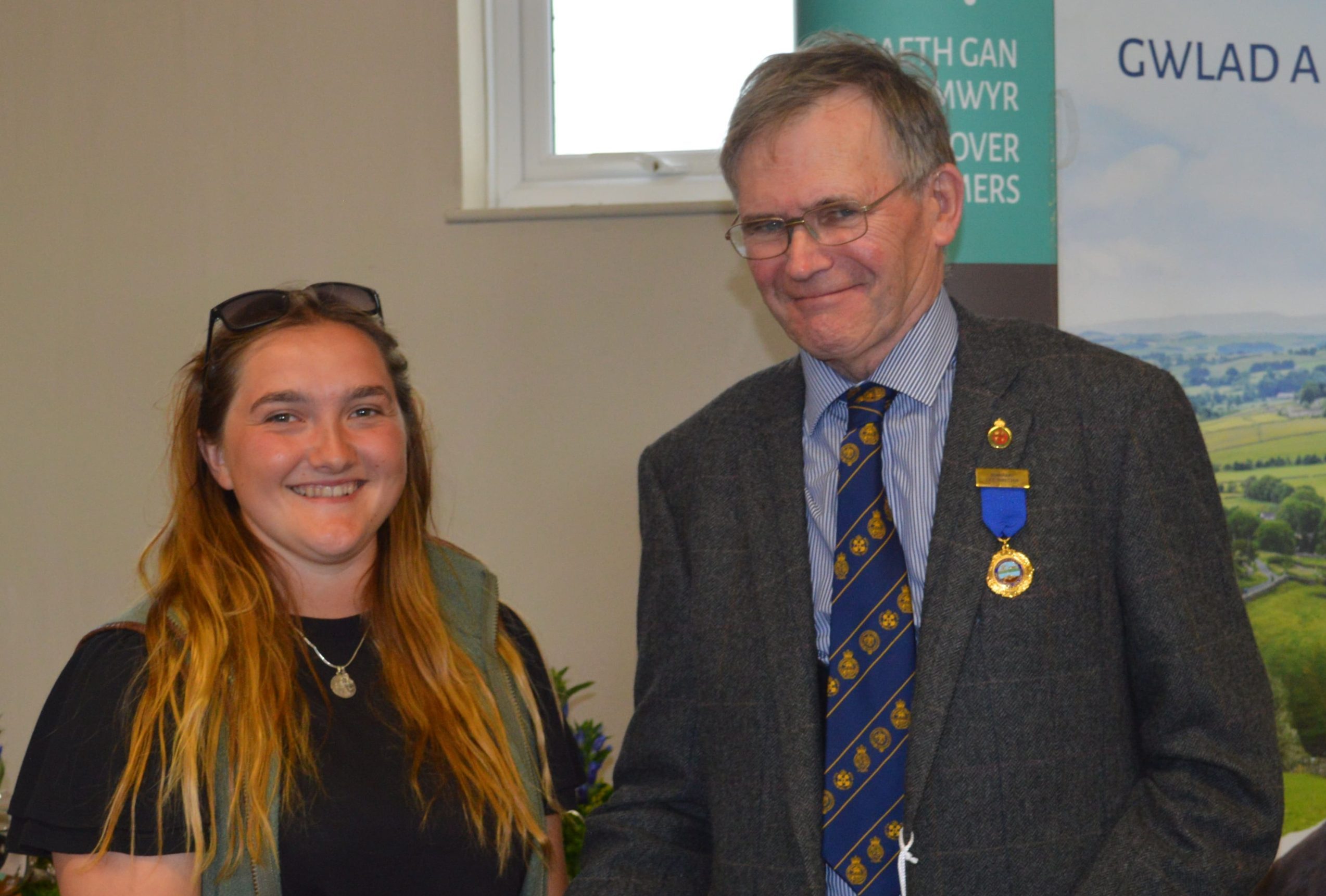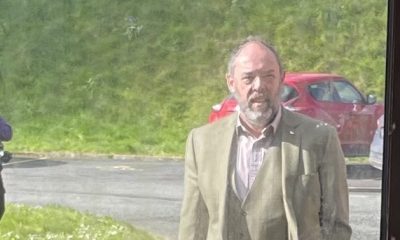Farming
Confidence drops as markets stay volatile
INCREASED volatility and falling commodity prices across the sectors have seen farmers’ confidence drop to lower levels than last year, a new survey by the NFU has revealed. Confidence, specifically in the arable and dairy sectors, has declined significantly from 12 months ago, but farmers across the industry have told NFU that the three-year forecast is much more positive. As part of our sixth annual confidence survey, members told the NFU that they expected negative impacts on their businesses in the coming year relating to regulation and legislation (69%); CAP reform (51%); output prices (56%) and input prices (46%). Output prices are the second most important factor affecting confidence, as members have seen their margins squeezed as a result of the fall in farmgate prices greater than the reduction in their costs of production.
The survey also shows that in the last two years twice as many farmers have seen their profits declining, with 49% of respondents now reporting declining profits (42% last year). Some 7% think their business may not survive – the highest figure in any year so far. Those figures were even more worrying in the dairy sector, where almost 20% of dairy respondents declared that their business may not survive, a rise from 3% in 2014. NFU President Meurig Raymond said: “This year has seen British farming face massive challenges, not least of all falling farmgate prices, particularly within the dairy and arable sectors. “Given the levels of volatility we have seen across the industry it is no surprise that we have seen farmer confidence in the negative.
It shows very clearly that we are absolutely correct to urge Defra and RPA to make every effort to speed delivery of BPS payments and that we press processors and retailers for a fairer return for the highquality food that farmers supply. “Regulation remains the key blocker for our members’ confidence. This gives a clear message that government must to do all that it can to ease regulatory pressure. Confidence is critical because it influences investment and production intentions. If we want our farms to compete in an increasingly global market place and make the most of emerging export opportunities, we need government action rather than rhetoric when it comes to reducing red tape. This is why NFU is calling for action in 2016 to reduce the frequency of farm inspections and improve their coordination.
“Our research has shown that looking forward, farmers have a generally optimistic outlook on their medium-term prospects. The government has a golden opportunity, in its 25-year Food and Farming Strategy, to map the course for a more confident and profitable industry. The NFU urges government, retailers and the public to back British farming to ensure this optimism is not misplaced.” More farmers said they want to invest in diversification, training and energy efficiency in the three years to come. Those intentions are backed by the higher levels of borrowing in agriculture registered for the first nine months of the year.
The volatility of markets was a key part of evidence given by the NFU to House of Lords committee on December 16. The NFU has given evidence to a group of Peers on how agricultural price volatility impacts farm businesses. Head of food and farming Phil Bicknell appeared before the House of Lords Energy and Environment Sub- Committee as part of its enquiry into market prices and wider resilience among farmers. It follows a similar enquiry being held by MPs on the House of Commons Efra Select Committee into farmgate prices.
With volatility characterising most agricultural markets, and the associated pressures on cash flow, profitability and long term business planning, the committee heard about the challenges of price volatility faced by NFU members. Mr Bicknell emphasised that sustained price volatility risks the viability of farm businesses, leads to reduced investment levels, and is a challenge for the whole food supply chain rather than just a farming issue.
He said: “Volatility is an ever increasing characteristic of agricultural markets, particularly as we’ve seen farm policy back away from market management and control to less marketdistorting policy tools. “Farming is a very resilient industry. Our industry is made up of farmers who are past masters at dealing with anything that’s thrown at them – whether that’s periods of low prices or the recent devastating floods that hit farming communities in Northern England. “But it’s important that we’re an industry that thrives rather than just survives and is geared up for future food production. A boom and bust cycle of prices benefits can be damaging in the long run.”
Farming
Pembrokeshire Agricultural Society in search for county’s top progressive farmers

IF you farm in Pembrokeshire and can demonstrate your farm’s use of the latest technological methods to promote progressive, sustainable agriculture then the Pembrokeshire Agricultural Society encourage you to enter the prestigious Baron de Rutzen Award.
Adam Thorne, Pembrokeshire County Show President, said, “We are looking for local Pembrokeshire farmers, under the age of 45, who can demonstrate their farm’s use of the latest technological methods to promote progressive, sustainable agriculture. They also need to show consideration for the environment and habitat sensitivity on their farm as well as present an aesthetically pleasing example of farming in the county. The competition welcomes all livestock and arable sectors to take part.”
Last year’s winners of the Award were Mark and Caroline Davies of Little Newcastle, Haverfordwest. They milk 230 pedigree Holsteins through a fully automated system. They rear their own replacements and also have a small beef enterprise. The farm is all grassland and they follow a strict reseeding and liming policy to optimise the yield from their multi-cut silage system. The couple place significant emphasis on animal health, husbandry and breeding to maximise the efficiency of their system.
Baron John Fredrick De Rutzen was President of Pembrokeshire Agricultural Society in 1936 and the Baron de Rutzen Trophy was produced in his memory. The third Baron served in the Welsh Guards and tragically died, aged 36, in 1944.
This year’s entrants must be fully practising farmers within the county of Pembrokeshire and were under the age of 45 years on 1 January 2024. Entries can either be by nomination or direct application online on the Pembrokeshire Agricultural Society website. Click here to apply: Baron de Rutzen Award | Pembrokeshire County Show | Pembs Agricultural Society (pembsshow.org)
The closing date for nominations and applications is at noon on Wednesday, 29 May 2024.
Farming
Pembrokeshire Agricultural Society elect new president

ARABLE and beef farmer, Adam Thorne, has been unanimously elected to become the new President of Pembrokeshire Agricultural Society for the year ahead. Adam is the third generation of his family to hold the position.
During the Annual General Meeting of Pembrokeshire Agricultural Society, held last week on the Pembrokeshire Showground, Mr Tim John and his wife Margaret John were also voted in as Presidents elect.
Adam Thorne has had a long association with Pembrokeshire Agricultural Society. After visiting the show as a toddler, then helping show the family’s pedigree Herefords, his uncle got him into helping him with stewarding in his early teens. From there he progressed to being a Steward with his own section, Commercial Cattle, and then also the Butcher’s Lambs section.
From stewarding, Adam became involved with committee work, starting as an Executive and then on to the former Finance and General Purposes Committee. He has been Chairman of the Estates Committee for 12 years and is now a Board member and a Trustee.
Adam said, “I am proud of my long association with Pembrokeshire Agricultural Society. I am the third generation to now be President, following my late grandfather, Walter Thorne, my father, Robert Thorne and more recently my uncle, George Thorne. I am looking forward to my year in the prestigious position.”
Away from his work with the society, Adam runs the family’s arable and beef farm in Robeston West, Milford Haven. He has been heavily involved with Tiers Cross YFC from an early age, having been Club Secretary twice and Chairman. He has also sat on Pembrokeshire County YFC Committees and the Wales YFC Rural Affairs Committee.
The 2024 Pembrokeshire Agricultural Society officeholders, announced at the AGM, include Miss Ffion Edwards who was awarded the role of Ambassador at last year’s show. Ffion, a nurse from Maenclochog, has enjoyed many years of attending the county show and believes that there are so many good elements to it. Ffion has been a member of Llysyfran YFC for 15 years and enjoys every aspect of young farmers – trying new experiences, competing and travelling to name a few. Mrs Nicola Owen was also elected as the Honorary Treasurer.
Brian Jones, the outgoing Pembrokeshire Agricultural Society President, took the opportunity to thank everyone who had helped and supported him throughout his presidency. During his year as President, Brian and his wife Helen, raised a tremendous amount of money for various charities including the Pembrokeshire Agricultural Society, RABI, Tir Dewi and the DPJ Foundation. Brian also gave his assurances that Castell Howell will continue to sponsor the Food Hall for future years.
Pembrokeshire County Show, the largest county agricultural show in Wales, will be held over two days again this summer on 14 and 15 August. Everyone is invited to attend the celebration of rural life in the county.
Pictured (left to right): Ffion Edwards the Ambassador for 2024; Adam Thorne, President; Margaret and Tim John, the Presidents Elect.
Farming
£1,000 bursary award available to Pembrokeshire agricultural students

PEMBROKESHIRE Agricultural Society’s £1,000 Bursary Award is now open for applications from students studying agriculture, veterinary science, agricultural engineering, food technology, forestry or other subjects allied to agriculture.
The Student Bursary Award 2024 is available to students, from Pembrokeshire, who are currently studying or have been accepted to start their studies. They can apply for this financial support to assist with their chosen college or career path.
Last year’s winner of the award was Lottie Wilson from Hayscastle. Lottie was studying agriculture at the University of Nottingham when she applied for the bursary. When she is at home she is a general dairy farm worker as well as a lambing hand and a calving beef herd assistant. In 2021 she was the top agriculture student at Hartpury College.
Robert James, Chairman of the Society’s Bursary Committee said, “I would urge all Pembrokeshire students who study subjects that are clearly aligned to agriculture to apply for this bursary as it won’t only assist with your studies but will also give you great experiences such as undertaking an interview which is a key employment skill. It will also assist in your future career within the agriculture industry.”
“A panel of independent judges will draw up a short list of candidates who will be interviewed and the winning candidate will be asked to give a short presentation at a future meeting of the society’s show council.
“The standard of applications has always been exceptional which gives a lot of heart that there are a lot of very talented young people in our community. We are very much looking forward to receiving applications for this year’s bursary and hearing from the younger generation.”
Qualifying students must not have won the student bursary on a previous occasion, the applicant must be studying or has been accepted to study agriculture or allied subjects at a UK college or university at A-Level or higher and the applicant’s family home must be in Pembrokeshire.
The bursary is tax free and will be awarded to the student who, in the opinion of the panel of judges, has submitted the best dissertation on how the bursary will assist them to complete their course of study.
Further details and the entry form can be found online: Student Bursary Award | Pembrokeshire County Show | Pembs Agricultural Society (pembsshow.org) or by calling the show office: 01437 764331. The closing date for applications is noon on Monday, 1 July 2024.
-

 Community2 days ago
Community2 days agoThe Harbourmaster: Special rail excursion draws crowds to Milford Haven
-

 News1 day ago
News1 day agoDragon LNG ‘monitoring’ scrap car blaze in Waterston
-

 Crime6 days ago
Crime6 days agoDock duo sentenced for Aldi meat theft
-

 News2 days ago
News2 days agoSearch for Luke, 19, reported missing in the Pembroke Dock area, continuing
-

 Crime6 days ago
Crime6 days agoMechanic lands four-figure fine after head-butting officer in Quins
-

 News3 days ago
News3 days agoMajor search in the area of The Cleddau Bridge and Hobbs Point
-

 Business8 hours ago
Business8 hours agoBluestone National Park Resort payments expected to end
-

 News5 days ago
News5 days agoNewgale pub fire: Cause undetermined, but ruled accidental





















